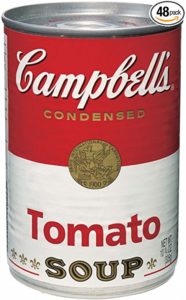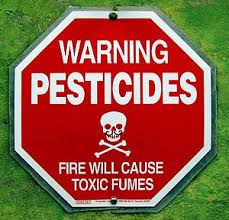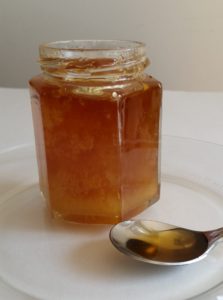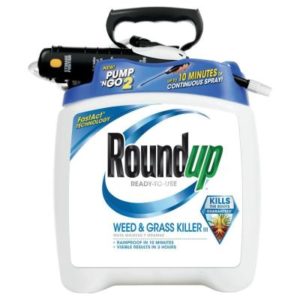 Did you know that our modern lifestyle is exposing us to thousands of harmful chemicals? All of us are exposed to many harmful chemicals daily - in ordinary household products, at work and school, in our food, and in the air and water around us. These chemicals are found in plastics, in stain resistant finishes, non-stick cookware, flame retardants, fragrances, pesticides, water resistant finishes, and antimicrobial products.
Did you know that our modern lifestyle is exposing us to thousands of harmful chemicals? All of us are exposed to many harmful chemicals daily - in ordinary household products, at work and school, in our food, and in the air and water around us. These chemicals are found in plastics, in stain resistant finishes, non-stick cookware, flame retardants, fragrances, pesticides, water resistant finishes, and antimicrobial products.
All these chemicals have made our lives easier in many ways, but they have a dark side. The chemicals leach out of the products and get on us and in us, and can be measured in our blood and urine.
They are linked to all sorts of health problems (reproductive effects, infertility, neurological effects, lower IQs, immunological problems, cancers, etc.) and the list is growing annually. Many are hormone (endocrine) disruptors. Developing children and fetuses are especially vulnerable, and the effects can be life-long.
We all have many of these harmful chemicals in our body. No one can totally avoid all these chemicals, but we can lower our exposure to many of them quite a bit. These chemicals get in us various ways: we ingest them (in food and water), we absorb them through the skin, and we breathe them in (e.g. in household dust and in the air).
Many chemical levels can be reduced quickly - within a few days or weeks (for example, by switching to different personal care products, switching to organic foods, and not eating canned foods).
 It is especially important to lower exposures to these harmful chemicals if you are considering conceiving a child, are pregnant, or have children. Many of these chemicals are linked to fertility problems for both men and women, and researchers think this is why male fertility is dropping so rapidly over the past few decades.
It is especially important to lower exposures to these harmful chemicals if you are considering conceiving a child, are pregnant, or have children. Many of these chemicals are linked to fertility problems for both men and women, and researchers think this is why male fertility is dropping so rapidly over the past few decades.
Yes, it does require a life-style change, and it does require reading labels, but it is worth it. Following these tips should also have the added bonus of improving your gut microbial communities. It's all related.
HOW TO REDUCE EXPOSURE TO HARMFUL CHEMICALS:
IN GENERAL - Try for a more “natural and non-toxic” lifestyle, and reduce use of plastics (including vinyl) and pesticides.
- Read labels of personal care products, household products, and clothing. Avoid products with parabens and oxybenzone. Avoid products that are antimicrobial, antibacterial, anti-odor, anti-stain, anti-mildew, and nonstick.
- Use unscented or fragrance-free products, including personal care products. Avoid fragrances or scented versions of products.
- Don't use air fresheners, dryer sheets, scented candles, incense, essential oils.
FOOD
- Buy foods and beverages in glass bottles and jars whenever possible. Store food in glass, stainless steel, or ceramic containers. Avoid plastic bottles and containers.
 Avoid canned foods, including aluminum cans - they are all lined with plastics containing BPA or equally bad BPA alternatives. Canned foods are a major source of endocrine disruptors. ...continue reading "Tips For Reducing Exposures to Harmful Chemicals"
Avoid canned foods, including aluminum cans - they are all lined with plastics containing BPA or equally bad BPA alternatives. Canned foods are a major source of endocrine disruptors. ...continue reading "Tips For Reducing Exposures to Harmful Chemicals"
 Dogs exposed to lawn pesticides develop similar cancers as humans exposed to lawn pesticides, but in dogs the cancers appear with a much shorter time lag - only a few years. In contrast, human cancers can take decades to appear. This is why dogs can be viewed as "sentinel species" - they show risks or dangers due to chemical exposures in the environment earlier than humans.
Dogs exposed to lawn pesticides develop similar cancers as humans exposed to lawn pesticides, but in dogs the cancers appear with a much shorter time lag - only a few years. In contrast, human cancers can take decades to appear. This is why dogs can be viewed as "sentinel species" - they show risks or dangers due to chemical exposures in the environment earlier than humans.
 Worried about the effects of persistent pesticides, flame retardants, and the chemicals used in non-stick pans (e.g.Teflon) on human health? An interesting
Worried about the effects of persistent pesticides, flame retardants, and the chemicals used in non-stick pans (e.g.Teflon) on human health? An interesting  Did you know that our modern lifestyle is exposing us to thousands of harmful chemicals? All of us are exposed to many harmful chemicals daily - in ordinary household products, at work and school, in our food, and in the air and water around us. These chemicals are found in plastics, in stain resistant finishes, non-stick cookware, flame retardants, fragrances, pesticides, water resistant finishes, and antimicrobial products.
Did you know that our modern lifestyle is exposing us to thousands of harmful chemicals? All of us are exposed to many harmful chemicals daily - in ordinary household products, at work and school, in our food, and in the air and water around us. These chemicals are found in plastics, in stain resistant finishes, non-stick cookware, flame retardants, fragrances, pesticides, water resistant finishes, and antimicrobial products. It is especially important to lower exposures to these harmful chemicals if you are considering conceiving a child, are pregnant, or have children. Many of these chemicals are linked to
It is especially important to lower exposures to these harmful chemicals if you are considering conceiving a child, are pregnant, or have children. Many of these chemicals are linked to  Uh-oh, these research findings are not a surprise. A
Uh-oh, these research findings are not a surprise. A  Pesticides are harmful to developing brains, especially during pregnancy. A number of studies have already found that higher exposure to organophosphate pesticides during pregnancy is linked to poorer cognitive functioning and behavior problems in children. A recent University of California study actually looked
Pesticides are harmful to developing brains, especially during pregnancy. A number of studies have already found that higher exposure to organophosphate pesticides during pregnancy is linked to poorer cognitive functioning and behavior problems in children. A recent University of California study actually looked  Once again the USA lags behind other countries - this time in banning harmful pesticides. Dr. Nathan Donley at the Center for Biological Diversity in Oregon
Once again the USA lags behind other countries - this time in banning harmful pesticides. Dr. Nathan Donley at the Center for Biological Diversity in Oregon  Did you know that over 90% of all Americans have pesticide residues in their bodies? How do we know this? From studies and from the
Did you know that over 90% of all Americans have pesticide residues in their bodies? How do we know this? From studies and from the  Are all foods contaminated by the herbicide glyphosate?
Are all foods contaminated by the herbicide glyphosate? Glyphosate (found in Roundup and Ranger Pro) is the most heavily used herbicide (weed-killer) in the world, and its use has been steadily increasing in the past decade.
Glyphosate (found in Roundup and Ranger Pro) is the most heavily used herbicide (weed-killer) in the world, and its use has been steadily increasing in the past decade.